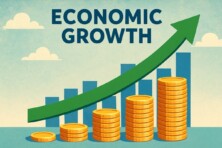In the United States, tertiary institutions are essential for many individuals in achieving their career goals and aspirations. It gives students the skills, knowledge, and credentials to pursue various careers. The cost of American Education has risen recently, making it difficult for low-income earners to attend high school. To address it, there have been frequent debates, theses, and essay writings on this idea’s potential drawbacks, challenges, and merits. This article explores the consequences of making universities tuition-free in the US.

The Potential Benefits of Free College Education
Eliminating tuition fees and associated costs for students is a topic that has been discussed previously. While it is an intriguing idea that has gained traction in recent years, it remains a topic of debate among policymakers, educators, and the public. Proponents have used different argumentative submissions in describing what individuals and society will benefit from it.
Many prominent writers have shared their perspectives on this topic, and PapersOwl’s Should College Be Free essays offer a wide range of the points exploring its various advantages. The following is an example of the points outlined in the essay topics that should be considered to ensure proposals for free college are achieved.
Increase access to education
It would remove barriers created by money that prevent many students from attending college, making it accessible to everyone regardless of their financial status.
Reduction in student debt
Students wouldn’t have to take out large loans to pay for tuition. As a result, it will reduce the burden of loans and enhance disposable income to spend on goods and services.
Increased competitiveness
The fact that university schemes are only attended by those who can afford exorbitant payments perpetuates inequality and limits the potential of millions of otherwise talented and capable individuals. With free college, there will be a boost in the production of highly skilled personnel, making the US more competitive globally.
Increase in diversity
It would create a more diverse student body, as students from a wider range of socio-economic backgrounds can attend college to get a degree. This would lead to a more inclusive and diverse society.
Improved social mobility
The policy creates opportunities for families from a background with low income to attend college, leading to an improved break in the cycle of poverty, a more educated workforce, boosting growth in the economy, and a more prosperous society.
Encouragement of innovation
It has the potential to encourage technological advancement and entrepreneurship. This results from more students having the opportunity to pursue their interests and develop new ideas without being held back by monetary constraints.
Challenges and Criticisms of Free College Education

Making colleges accessible to everyone has been gaining popularity in recent years. More people are beginning to recognize the advantages of schooling without any monetary burden. However, there are also several challenges and criticisms of free college that economists address. These include the following:
Cost
Making college tuition free to everyone requires a significant amount of funding from the government. As a result, there is a high tendency to hike taxes, which could be difficult to sustain over time.
Equity
While many people will benefit from free college, it may not address existing disparities in access to education. For instance, lower-income students may still need help with free tuition. This includes a need for more support or resources. There are growing criticisms that more targeted approaches, like increased financial aid or targeted support programs, may be more effective in addressing equity issues.
Quality and value
Several theses emphasize how free college might lower the overall quality of education. It may attract students who are not academically prepared for schooling. This could lead to lower graduation rates and a devaluation of college degrees. It can also result in a lack of grants to invest in resources and faculty, reducing the pressure to improve quality.
Understanding the Economic Effects of Eliminating Tuition Fees in Higher Education
Free college would positively and negatively influence the US economy. Hence, it’s essential to consider any policy proposal and balance these factors. It could increase access to schooling, resulting in a more educated and skilled workforce. It can also free up more funds for young people to spend on other goods and services. This will boost consumer spending and economic growth.
However, it could be costly to implement and sustain. As a result, there will be a hike in taxes or reduced funding for other essential industries. If more people pursue schooling without a clear career path or motivation, it could lead to a glut of graduates with degrees that do not translate into well-paying jobs. As a result, there will be a burden on the country as more people struggle to pay off student loan debt and cannot contribute meaningfully to the workforce.
Conclusion
The US has long been a leader in innovation, scientific discovery, and technological advancement. Still, its position is increasingly threatened by other nations that invest more heavily in the education system. By introducing free college, American Education could level the playing ground. This will make it continue producing the best and brightest minds. Many believe free college education in the U.S. is a matter of social justice. It should be a fundamental right, accessible to everyone, regardless of background and status. Every essay on why college should be free explores the advantages it offers to a wide demographic of people. However, there are also potential challenges and concerns to consider in ensuring it is sustainable in the long term.









